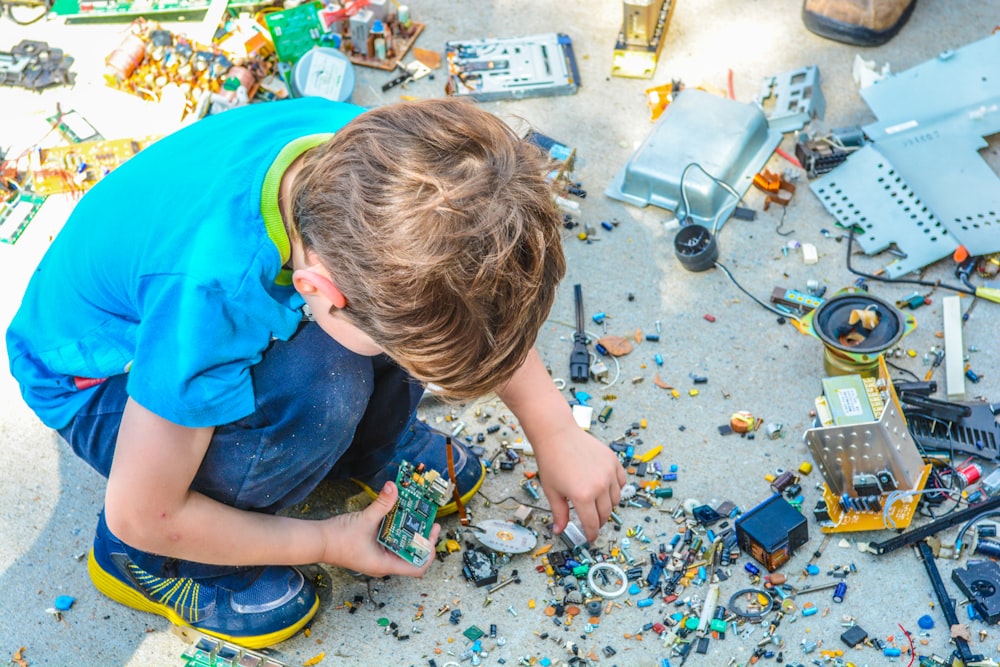As an adult, my excitement towards Christmas has been limited to one of two activities:
1. Teaching my students how to make crafts for loved ones
and
2. Pressing all of the toys at Kmart and then walking away, creating an annoying canon of Christmas carols
I also work with my loved ones (my parents and my wife) to throw together some donation baskets for various animal rescues and family charities. Other than that, I tend to leave the country, so I miss a lot of the Christmas hype. Being grown-ass adults, we also don’t bother with gifts.
As a child, I had a few short, sweet years where I believed there was a Santa Claus. I eventually had doubts – after all, why would an altruistic flying dude with a sack fail to address world hunger if he could deliver a bunch of stuff to kids every year?
I also questioned the plausibility of the physics, but it was good fun while it lasted. One of my best memories was when my brother and I received a game to share – Key to the Kingdom. Best 1990s board game, ever. Also, when we received a Yo-Ho Diablo, also to share. I can never remember having as much fun with a toy as when we took that bad boy into primary school and showed off all our tricks.
Santa must have known how much we wanted those particular toys…. right?
Now that we are about to give birth, I am noticing that there are two distinct teams – Team Santa and Team Critical Thinking. The former love to take their children through the Santa stories, leaving carrots out for the reindeer. They’ll claim that at least one of the presents beneath the tree has been delivered by Santa. The latter consider themselves to be critical thinkers and shun the idea of propagating any ‘lies’ with their children because they want to foster intellect in their progeny.
Excuse me while I vomit.
While these types wish to endow their child with thinking prowess, they fail to acknowledge one vital caveat; there has been limited research to support their assertion. That is to say, their rejection of Santa Claus on the basis of it disrupting critical thought development is mostly anecdotal conjecture. To which I give a resounding…. citation required.
You would think that the first place a critical thinking parent would go to form their views would be research, but peer-reviewed articles to support the Anti-Santa viewpoint largely do not exist – like Santa himself.
What does exist is a significant body of research on development that points to the unequivocal benefits of pretend play and imagination. Children who engage in this form of play by themselves and with others develop a greater capacity for cognitive flexibility and creativity.
Busting the Santa Myth using burgeoning critical reasoning skills actually paves the way for cognitive development that will later be beneficial for persuasion, problem-solving, and innovative activities (like robotics!)
It is generally a short-lived myth, but while children believe, it can provide magic and positivity – from the sharing of stories, the anticipation of writing letters to Santa, and the excitement of receiving a gift. I personally draw the line at using Santa to control behaviour – be good or you won’t get anything from Santa! After all, managing behaviour is the job of parents – but there are no clauses in the handbook that say you need to use Santa in that way, and it probably won’t do any lasting harm.
Once the child begins to work through the myth themselves, that is when the real magic begins, because you can then appoint them as Santa’s Helper – a child who has figured it all out themselves, but who has a special role in protecting it for younger siblings and friends. Children who have lived Santa’s magic might relate to keeping it alive for others, but children who have always heard the Santa myth shunned will likely struggle to develop this empathy.
I have met many families who squash the Santa myth before their child is ever able to believe. Far from developing critical thought, what tends to happen is an uncomfortable sense of intellectual and moral superiority from the mouths of babes.
“Only BABIES believe in Santa Claus. You must be STUPID.”
You can imagine how pleasant these children are.
I received the short-lived joy of Santa as a child. I am critically rigorous of any viewpoint as an adult, to the point where it annoys the people who love me because I won’t accept any poppycock at face value. That is to say – yep, I’m not fun at parties!
Yes, that is an anecdote with a sample size of 1, but I think you’ll find the rigour of figuring Santa out is more beneficial for a child than begrudging them the experience in the name of ‘critical thinking.’
Ooh-la-la.
Let them eat cake – and leave some out for the big guy, too.
Merry Christmas, happy holidays, or whatever you relate to! May this season be a time of safety and love for you and yours.




Couldn’t have said it better. Santa is important for nurturing fantasy and creativity. In fact, any other fairytale will have the same positive effect. Tossing your kids in a dull reality devoid of any fantasy for the sake of honesty is wrong on so many levels. It’s better to leave them thinking about it and reason the truth on their own in their own time.” Is Santa real?” – “That’s what I’ve heard. What do you think?”
So much more magical than shoving any kind of reality in them 🙂
Bang on! It’s about nurturing creativity and fantasy – two beneficial aspects of childhood. Critical thinking can still be developed in the realm of those two things.